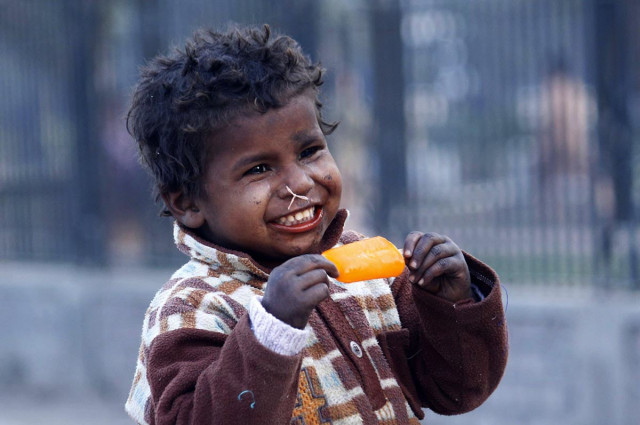Confronting child malnutrition
Pakistan struggles with starvation and malnutrition

Pakistan struggles with starvation and malnutrition. PHOTO: APP
Some 32 per cent of children in the country are underweight and this is quite a point to consider in the backdrop of the recently concluded Eidul Azha where thousands of kilogrammes of meat were distributed among the poor. Of course, one annual occasion to try and balance out the food availability gap for the poor is highly inefficient to even put a dent in the high rates of child malnutrition. While the intention to feed the poor by ordinary citizens might be there, the will of the government leadership is nowhere to be found. It seems the government’s only goal is to invite more financial aid into the country with a primary focus on the economy. However, it fails to realise that the overall health of the country’s population is an important factor when it comes to economic growth wherein children who have healthy physical and cognitive development will be able to participate in the growth of the economy as adults. Hopefully, the DFID’s programme will enable our leadership to acknowledge that.
Published in The Express Tribune, September 19th, 2016.
Like Opinion & Editorial on Facebook, follow @ETOpEd on Twitter to receive all updates on all our daily pieces.















COMMENTS
Comments are moderated and generally will be posted if they are on-topic and not abusive.
For more information, please see our Comments FAQ